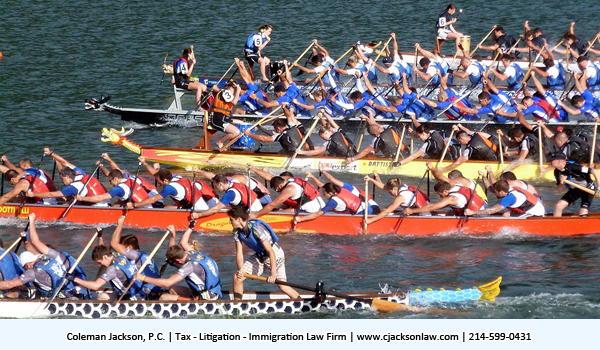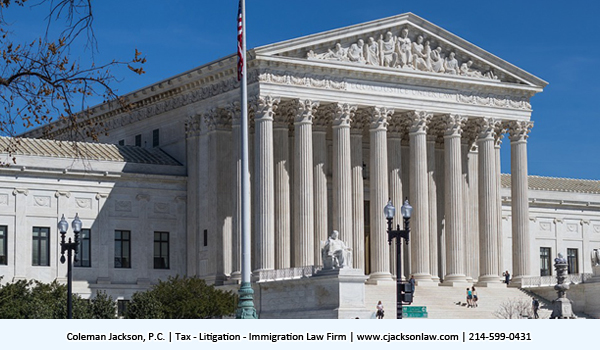By: Coleman Jackson, Attorney & CPA
March 12, 2021

What is a bid protest?
A bid protest is a challenge to the award or proposed award of a contract for the procurement of goods and services or a challenge to the terms of a solicitation for such a contract.
What kinds of bid protests can be filed at GAO?
Protests may be filed against procurement actions by federal government agencies.
What kinds of protests cannot be filed at GAO?
Protests may not be filed against procurement actions by non federal government agencies, such as state, local, or foreign governments, or actions by certain exempted federal agencies, such as the Postal Service. For more information, see Bid Protest Regulations (4 C.F.R. § 21.5) and Bid Protests at GAO: A Descriptive Guide.
Who can file a bid protest at GAO?
Only “interested parties” may file protests. In the case of a solicitation challenge, an interested party is generally a potential bidder for the contract. In the case of a contract award challenge, an interested party is generally an actual bidder that did not win the contract. In addition, other factors, such as the bidder’s standing in the competition and the nature of the issues raised may affect whether it qualifies as an interested party. For more information, see Bid Protest Regulations (4 C.F.R. § 21.0(a)) and Bid Protests at GAO: A Descriptive Guide.
When must a protest be filed?
In general, a protest challenging the terms of a solicitation must be filed before the time for receipt of initial proposals. A protest challenging the award of a contract must be filed within 10 days of when a protester knows or should have known of the basis of the protest (a special case applies where, under certain circumstances, the protester receives a required debriefing). Please be aware that the regulations regarding the timely filing of protests depend on all facts and circumstances of each case and are strictly enforced. For more information, see Protest Regulations (4 C.F.R. § 21.2) and Bid Protests at GAO: A Descriptive Guide.
How is time calculated for filing deadlines?
“Days,” under GAO’s regulations, means “calendar days.” In the event a deadline falls on a weekend, federal holiday, or other day when GAO is closed, the deadline is extended to the next business day. For more information, see Bid Protest Regulations (4 C.F.R. § 21.0(e)) and Bid Protests at GAO: A Descriptive Guide.
I was awarded a contract and was told that the award has been protested – what must I do, and what am I allowed to do?
Parties that have been awarded a contract are permitted to participate in a protest as an intervenor. They are not required to do so, however, as it is the agency’s responsibility to respond to the protest and defend the award of the contract.
Are employee unions or representatives allowed to file protests or participate as intervenors?
Government employees and their representatives may participate as protesters and intervenors in protests involving competitions conducted under Office of Management and Budget Circular A-76. For more information, see Bid Protest Regulations (4 C.F.R. § 21.0(a)(2), (button) (2)) and Bid Protests at GAO: A Descriptive Guide.
Do I need an attorney to file a protest or participate as an intervenor?
No. Parties may file a protest or participate as an intervenor without being represented by an attorney. However, only attorneys are permitted to have access to material subject to a protective order. Bid protest rules, procedures and practices are governed by the rule of law(The Federal Acquisition Regulations (FAR) for federal contracts); therefore, an understanding of relevant statutes, regulations and case law would be extremely helpful for framing and presenting a credible bid protest.
Federal Bid Protest Jurisdiction and Filing Deadlines:
This reference lays out the filing deadlines, jurisdictional requirements, stay rules, and appeal processes for each place a bid protest can be filed: the Government Accountability Office,the U.S. Court of Federal Claims, and the procuring agency.
The rules differ by type of procurement. Chart 1 lists the rules for protesting contracts awarded under FAR Parts 13, 14, and 15. Chart 2 lists the rules for protesting task and delivery orders issued under most IDIQ contracts. Chart 3 lists the special rules that apply to protests of task orders issued under the General Service Administration’s Federal Supply Schedule contracts.
GAO Procedures:
Over the years, GAO’s decisions on federal contract awards have created a uniform body of law applicable to the federal procurement process upon which the Congress, the courts, agencies, and the public all rely.
Automatic Stay?
For pre-award protests, the agency must suspend award of the contract once it receives notice from GAO that a protest has been filed. FAR 33.104(b).For post-award protests, the agency must suspend performance if it receives notice of the protest from GAO within 10 days after contract award or within 5 days after the debriefing date offered to the protester for requested and required debriefings under FAR 15.505 or 15.506, whichever is later. FAR 33.104(c). (Note: Debriefings are not “required” for procurements under FAR Part 13 (FAR 13.106-3(d)), or Part 14 (except 14.5 (two-step sealed bidding) FAR 14.503-1(g))).In DoD procurements, for debriefings requested and required under FAR 15.506(d), contracting officers must provide an opportunity for unsuccessful offer or to submit additional questions within 2 business days of receiving a debriefing. The agency then has 5 business days to respond in writing. See10 U.S.C. § 2305(b)(5). The 5-day filing period to trigger an automatic stay does not start until after the agency delivers the written responses. See31 U.S.C. § 3553(d)(4).
Jurisdictional Timelines:
- A pre-award protest based on alleged improprieties in the RFP that are apparent prior to receipt of proposals must be filed prior to the time set for receipt of proposals. Improprieties subsequently incorporated into the solicitation must be protested by the next closing time for receipt of proposals following incorporation. See 4 C.F.R. § 21.2(a)(1). Where a basis for challenging the terms of a solicitation does not arise until after proposal submission, a protest is due 10 days after the basis of protest is known or should have been known. See 4 C.F.R. § 21.2(a).
- An offer or excluded from the competitive range before award must request a debriefing in writing within 3 days after receipt of notice of exclusion to obtain a “required” debriefing. See FAR 15.505(a)(1). The offer or then must file its protest not later than 10 days after the date on which the debriefing is held. See 4 C.F.R. § 21.2(a)(2).
- For competitions where a debriefing is requested and required, post-award protests must be filed not later than 10 days after the debriefing is held, but not before the offered debriefing date. See 4 C.F.R. § 21.2(a)(2), for DoD, 10 days run from when DoD answers timely “additional questions.”
- For all other protests not covered above, the protester must file its protest within 10 days after the basis of protest is known or should have been known, whichever is earlier. See 4 C.F.R. § 21.2(a)(2).
Subject Matter Jurisdiction Limits:
- Only an “interested party” may protest improprieties in an RFP or award or termination of a federal contract. See 4 C.F.R. § 21.1(a). An “interested party” is an actual or prospective offer or whose direct economic interest would be affected by the award of a contract or the failure to award a contract. See 4 C.F.R. § 21.0(a)(1).
Note: An alleged Procurement Integrity Act violation must be brought to the Agency’s attention within 14 days of discovery, or it cannot be raised in a GAO protest. See FAR 33.102(f); 41 U.S.C. § 2106.
Process for Appealing Unsuccessful Decision:
A Request for Reconsideration may be filed at GAO not later than 10 days after the basis for reconsideration is known or should have been known, whichever is earlier. See 4 C.F.R. § 21.14.
A protester may “appeal” a GAO decision to the Court of Federal Claims by filing suit alleging that the agency’s procurement was “arbitrary, capricious, an abuse of discretion, or otherwise not in accordance with the law” in violation of the Administrative Procedure Act, 5 U.S.C. § 706(2)(A). 28 U.S.C. § 1491. There is no strict timeline for filing such an “appeal.”
A contractor may also file suit in the Court of Federal Claims alleging that an Agency’s proposed or actual corrective action, even if recommended or approved by GAO, is arbitrary, capricious, an abuse of discretion, or otherwise not in accordance with law.
Readers interested in following our blogs on government contract law, such as, relevant federal, state and local public contract decisions should visit our website at www.cjacksonlaw.com where we post our most recent blogs. Our blogs in government contracting covers relevant decisions issued by the GOA, case decisions issued by the Court of Federal Claims and various state court decisions on public contract law. Readers can also subscribe to our taxation, government contract litigation and immigration law Legal Thoughts Podcast where ever they listen to their podcast.
This law blog is written by the Taxation | Litigation | Immigration Law Firm of Coleman Jackson, P.C. for educational purposes; it does not create an attorney-client relationship between this law firm and its reader. You should consult with legal counsel in your geographical area with respect to any legal issues impacting you, your family or business.
Coleman Jackson, P.C. | Taxation, Litigation, Immigration Law Firm | English (214) 599-0431 | Spanish (214) 599-0432 | Portuguese (214) 272-3100



